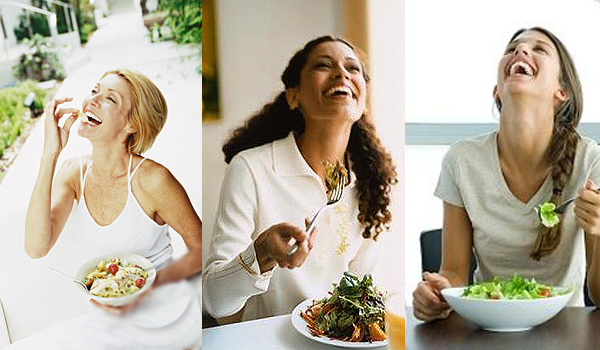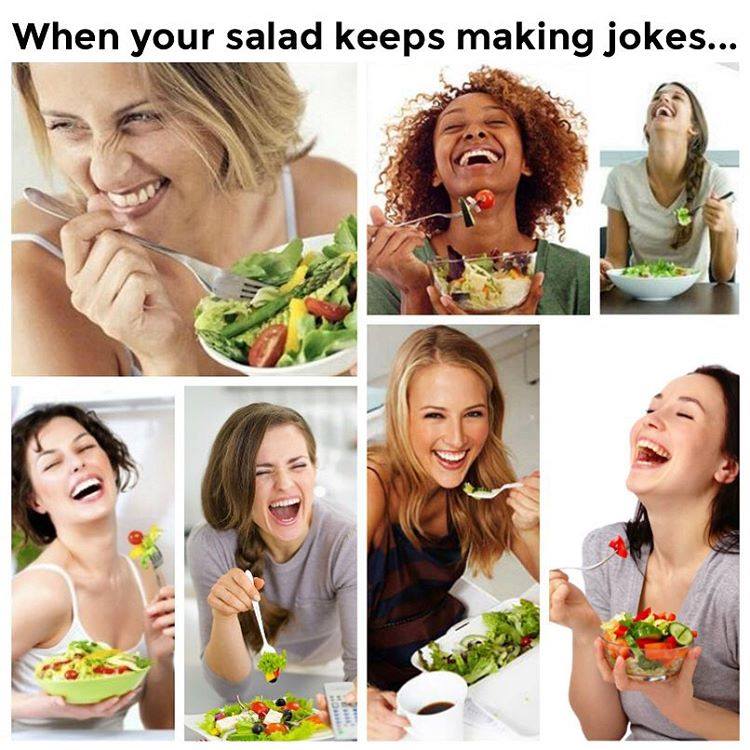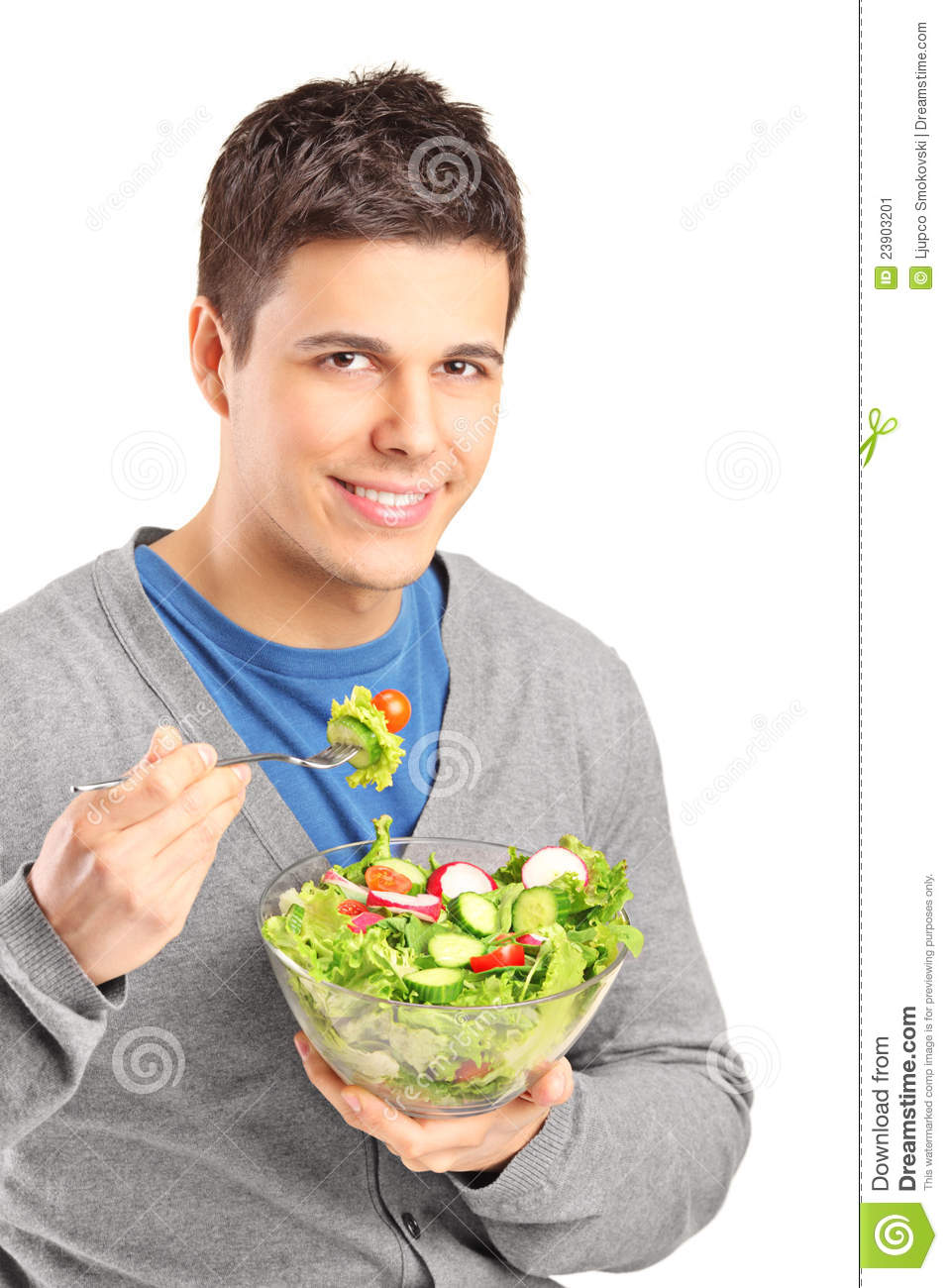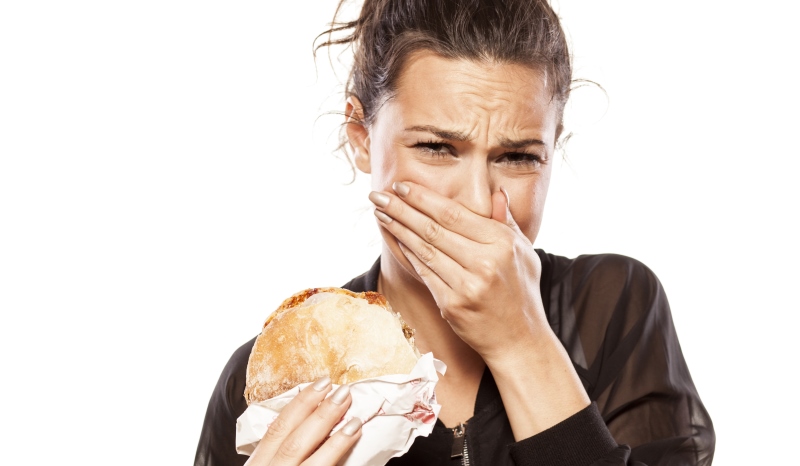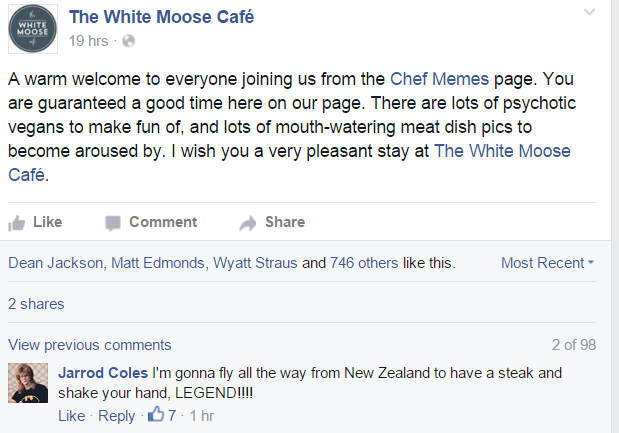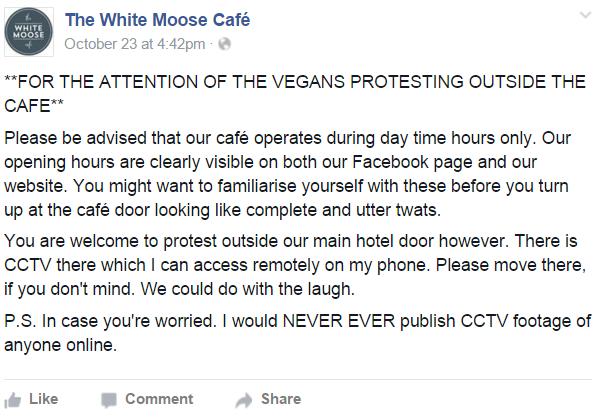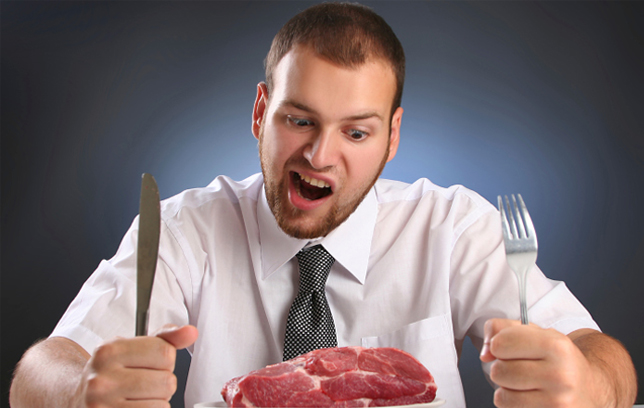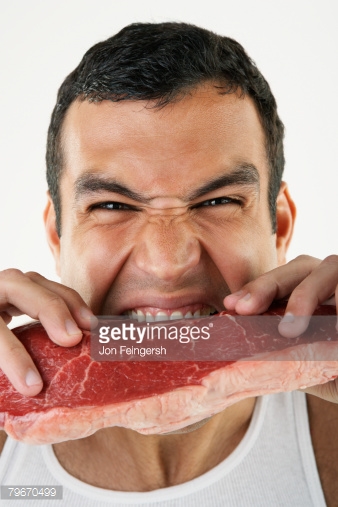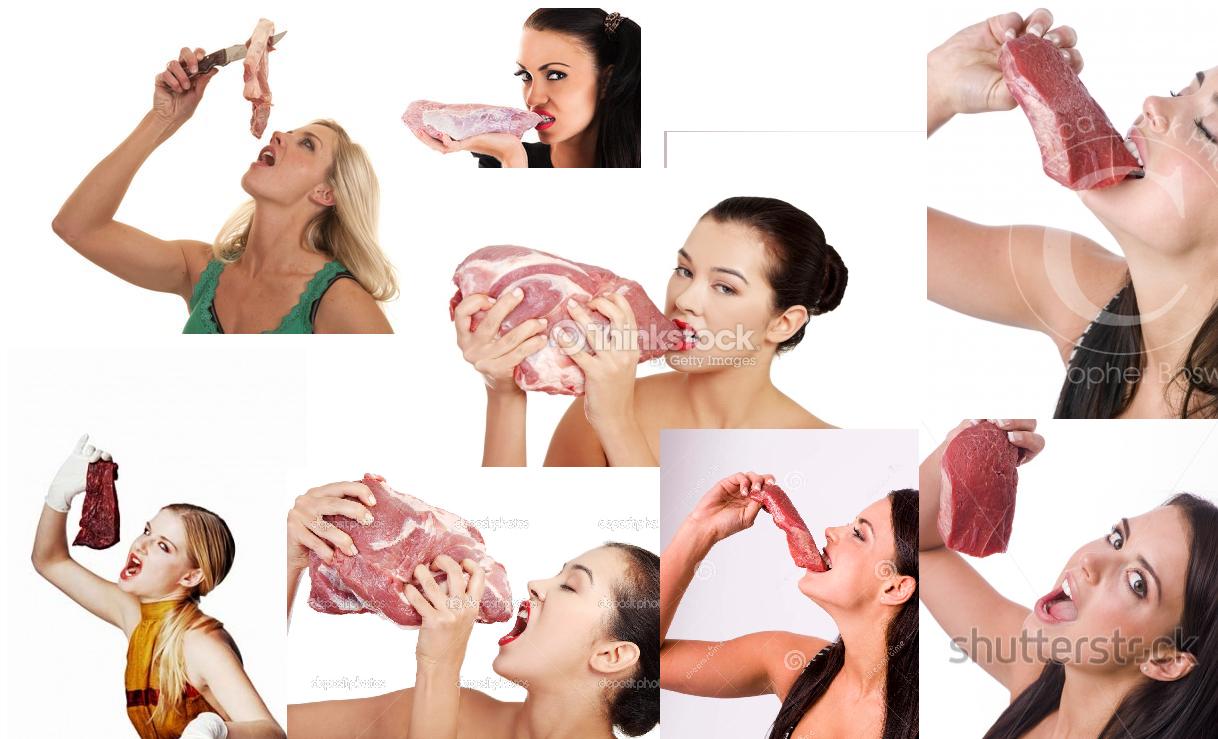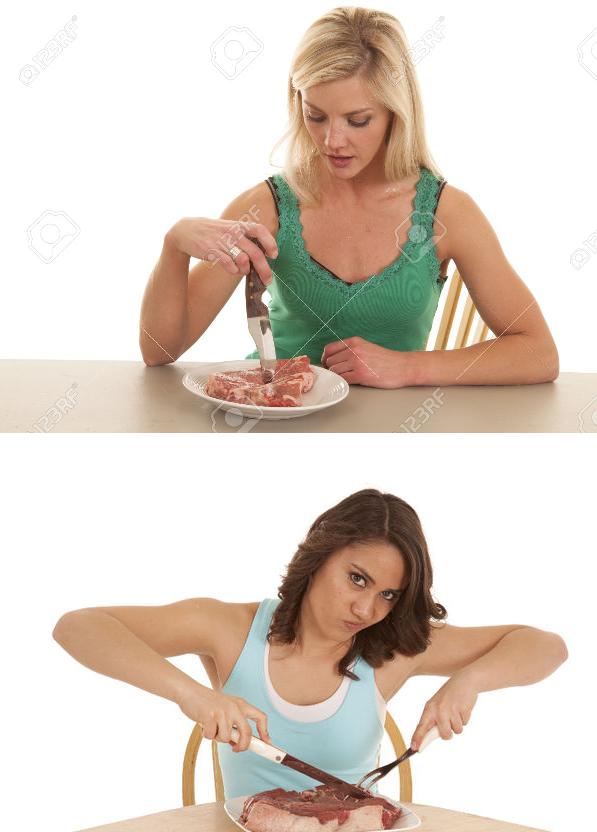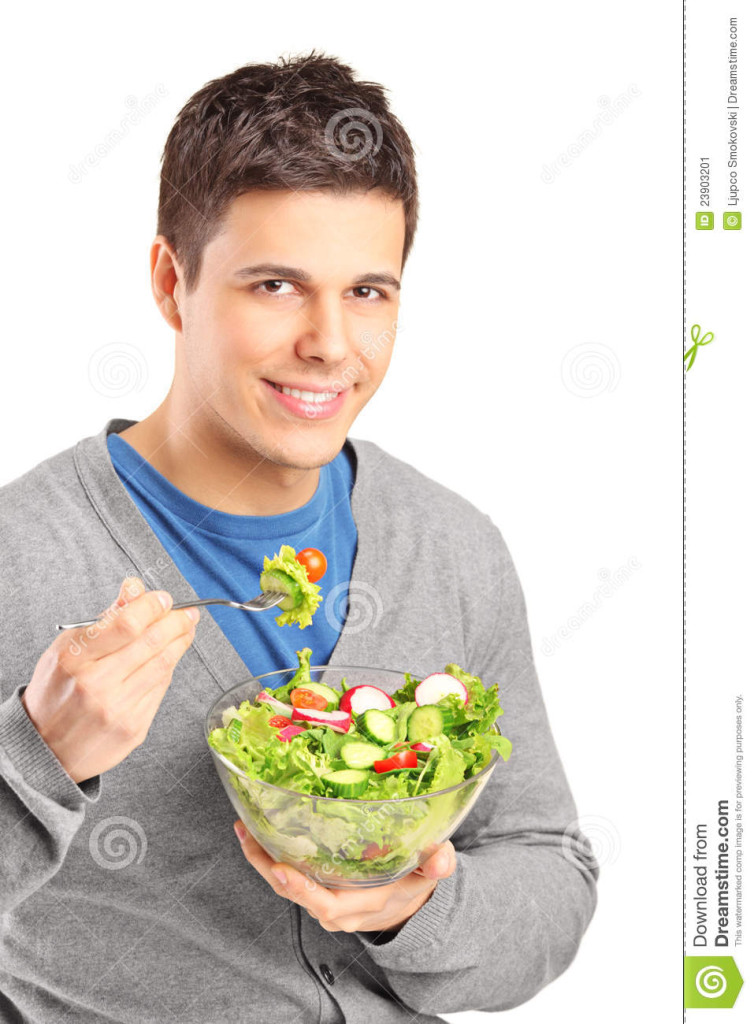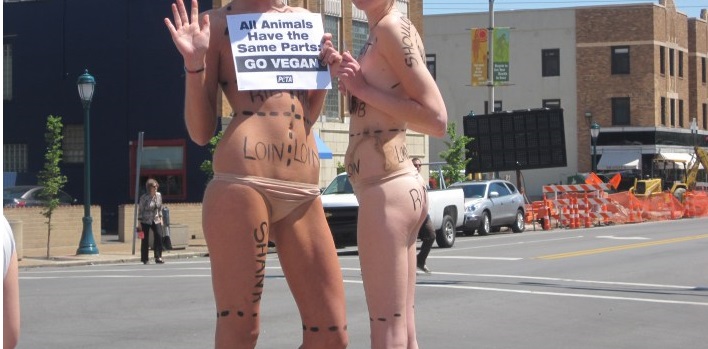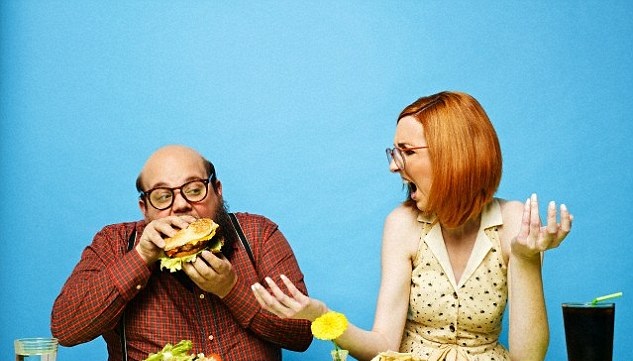| Translation by Hypathia: Feminist and Anti-Speciesist Blog. The original English version of this essay can be found by clicking here. |
Vous les avez vues des centaines de fois. Vous savez, la dame croquant dans une salade, les yeux brillants. Tête rejetée en arrière avec une jubilation hystérique, elle est surprise par le glorieux mélange de végétaux qui agrémentent son assiette. Le tract promotionnel de votre coopérative locale d’alimentation naturelle en est orné. Le site web de votre chaîne d’épicerie les utilise. Ainsi que les affiches sur les murs de la salle d’attente de votre médecin. Des tonnes d’organisations véganes les utilisent. Zut, je parie que si je vérifie bien, j’en ai probablement montré une pour illustrer un des billets de ce blog au moins une fois.
Des stocks de femmes… assises seules… avec une salade tellement hilarante, qu’elles ne peuvent s’empêcher d’exploser de rire et de délice.
L’absurdité de ces images a attiré l’attention d’Internet, avec pour résultat des imitations: une page Tumblr, et même une pièce de théâtre.
Manger une salade n’est pas particulièrement drôle. Ça induit rarement l’extase. Habituellement, c’est plutôt une expérience difficile consistant à introduire maladroitement des feuilles de laitue ans votre bouche. C’est souvent insatisfaisant : trop ou pas assez d’assaisonnement. En réalité, vous craignez qu’un bout de laitue reste coincé entre vos dents, et ça vous empêche de sourire d’une oreille à l’autre entre chaque bouchée. En général, manger de la salade est une activité ennuyeuse et ordinaire.
Quand votre salade n’arrête pas de faire des plaisanteries:
Mais manger de la salade est une activité de femme, et comme telle, elle doit être accomplie de façon à raconter une histoire particulière qui a une fonction quand on l’observe et la documente.
La théorie féministe végane nous dit que la nourriture -ce que nous mangeons et comment nous le mangeons- est fermement enracinée dans des normes de genre. La consommation de légumes (avec la salade comme omniprésent cliché) est un comportement hautement féminisé. Les codes publicitaires genrés montrent aussi de façon régulière une hyper émotivité chez les femmes. D’où découle qu’elles y sont portraiturées avec des réponses émotionnelles extrêmes et inappropriées. Ces représentations ajoutent l’émotivité, l’infantilité et l’immaturité, à l’habituelle compréhension culturelle de la féminité. Ces images renforcent le statut de subordination des femmes. Apparier des femmes hyper-émotives avec des nourritures hyper-féminisées compose une parfaite iconographie sexiste.
Bien sûr, on m’a opposé l’inévitable argument “les hommes aussi”. Vrai, on nous montre des hommes s’excitant légèrement avec des salades, mais soyons honnêtes, ils sont moins fréquemment dépeints riant la tête rejetée en arrière, en sous-vêtements ou enceint.es ! La frivolité genrée de la consommation de salades est terriblement une affaire de femmes.
Quand on nous montrera des hommes -scénario improbable- mangeant une salade, prostrés dans un lit, en string blanc, alors, OK, on en reparle.
 Dr. Wrenn is Lecturer of Sociology. She received her Ph.D. in Sociology with Colorado State University in 2016. She received her M.S. in Sociology in 2008 and her B.A. in Political Science in 2005, both from Virginia Tech. She was awarded Exemplary Diversity Scholar, 2016 by the University of Michigan’s National Center for Institutional Diversity. She served as council member with the American Sociological Association’s Animals & Society section (2013-2016) and was elected Chair in 2018. She serves as Book Review Editor to Society & Animals and has contributed to the Human-Animal Studies Images and Cinema blogs for the Animals and Society Institute. She has been published in several peer-reviewed academic journals including the Journal of Gender Studies, Feminist Media Studies, Disability & Society, Food, Culture & Society, and Society & Animals. In July 2013, she founded the Vegan Feminist Network, an academic-activist project engaging intersectional social justice praxis. She is the author of A Rational Approach to Animal Rights: Extensions in Abolitionist Theory (Palgrave MacMillan 2016).
Dr. Wrenn is Lecturer of Sociology. She received her Ph.D. in Sociology with Colorado State University in 2016. She received her M.S. in Sociology in 2008 and her B.A. in Political Science in 2005, both from Virginia Tech. She was awarded Exemplary Diversity Scholar, 2016 by the University of Michigan’s National Center for Institutional Diversity. She served as council member with the American Sociological Association’s Animals & Society section (2013-2016) and was elected Chair in 2018. She serves as Book Review Editor to Society & Animals and has contributed to the Human-Animal Studies Images and Cinema blogs for the Animals and Society Institute. She has been published in several peer-reviewed academic journals including the Journal of Gender Studies, Feminist Media Studies, Disability & Society, Food, Culture & Society, and Society & Animals. In July 2013, she founded the Vegan Feminist Network, an academic-activist project engaging intersectional social justice praxis. She is the author of A Rational Approach to Animal Rights: Extensions in Abolitionist Theory (Palgrave MacMillan 2016).
Receive research updates straight to your inbox by subscribing to my newsletter.

